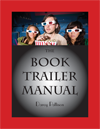new posts in all blogs
Viewing: Blog Posts Tagged with: Progressive Latino Podcast, Most Recent at Top [Help]
Results 1 - 5 of 5
How to use this Page
You are viewing the most recent posts tagged with the words: Progressive Latino Podcast in the JacketFlap blog reader. What is a tag? Think of a tag as a keyword or category label. Tags can both help you find posts on JacketFlap.com as well as provide an easy way for you to "remember" and classify posts for later recall. Try adding a tag yourself by clicking "Add a tag" below a post's header. Scroll down through the list of Recent Posts in the left column and click on a post title that sounds interesting. You can view all posts from a specific blog by clicking the Blog name in the right column, or you can click a 'More Posts from this Blog' link in any individual post.

By: Julia Callaway,
on 6/20/2014
Blog:
OUPblog
(
Login to Add to MyJacketFlap)
JacketFlap tags:
critical care,
ICU,
Richard Griffiths,
Textbook of Post-ICU Medicine,
Medical Mondays,
illness,
patients,
intensive,
dysfunction,
griffiths,
critical,
recover,
*Featured,
medical research,
Science & Medicine,
Health & Medicine,
pathological,
Add a tag
By Richard D. Griffiths
Over the last half century, critical care has made great advances towards preventing the premature deaths of many severely ill patients. The urgency, immediacy, and involved intimacy of the critical care team striving to correct acutely disturbed organ dysfunction meant that, for many years, physiological correction and ultimate patient survival alone was considered the unique measure of success. However, over the last quarter century, our survivor patients and their relatives have told us much more about what it means to have a critical illness. We work in an area of medicine where survival is a battle determined by tissue resilience, frailty, and the ability to recover, but this comes at a price. As our focus has moved beyond the immediate, we have learned about the ‘legacy of critical care’ and how having a critical illness impacts life after ICU through its consequential effects on physical and psychological function and the social landscape.

This fundamental cultural change in how we perceive critical care as a specialty and where our measure of a successful outcome includes the quality of life restored has come about through the sound medical approach of listening to our patients and families, defining the problems, and carefully testing through research hypotheses as to causation and possible therapeutic benefit. It not only has changed how patients are considered and cared for after intensive care, but, through the detailed knowledge of how patients are affected by the consequences of the critical illness, it has fostered fundamental research to improve the care and therapies we use during their stay. As with all sound clinical advances, it has helped shed light and ill-informed dogma and helped re-focus the research agenda to ensure that the long-term legacies of a critical illness are equally considered. Immobility, oft considered of little consequence, is now recognized to be a significant pathological participant and contributor to disability. Amnesia, in short-term anaesthesia considered a benefit, now has defined pathological significance, along with previously poorly recognized cognitive deficits and delusional experiences, all consequences of acute brain dysfunction. The family, often in the past merely a repository of information, is now recognized to play a much greater role in how patients recover and are themselves traumatized by the experience, so meriting help and support if they are to assist in rehabilitation.
Perhaps the purest achievement has been the bringing together of contributions not just from patients and their families, but form the wide breadth of professionals deeply involved in the care of the critically ill from across many continents. Not only have the doors of the intensive care unit been thrown open, but so too have the minds of those working for the best care of our patients. The reward of a visit some months later of a patient brought back from the brink of death is cherished by a critical care team. Added to this, the knowledge that our patients are now understanding what happened to them and they and their families are being given the help to recover their lives following the legacy of critical care is something of which our specialty should be justly proud. We cannot ignore the lessons we have learned.
Richard D. Griffiths is Emeritus Professor of Medicine (Intensive Care) and Honorary Consultant at the Institute of Aging and Chronic Disease, University of Liverpool. He is a contributor to Textbook of Post-ICU Medicine: The Legacy of Critical Care.
Subscribe to the OUPblog via email or RSS.
Subscribe to only health and medicine articles on the OUPblog via email or RSS.
Image: Doctor consults with patient by National Cancer Institute. Public domain via Wikimedia Commons.
The post The legacy of critical care appeared first on OUPblog.


By:
Darcy Pattison,
on 10/17/2011
Blog:
Darcy Pattison's Revision Notes
(
Login to Add to MyJacketFlap)
JacketFlap tags:
scbwi,
winter,
NYC,
professional,
conference,
book trailers,
writers,
book marketing,
Darcy Pattison,
intensive,
social media events,
Add a tag

Where will you be on January 27, 2012?
I’ll be in New York City, hoping that the weather is warm!
MARKETING FOR PROFESSIONAL WRITERS INTENSIVE DEBUTS AT THE 2012 SCBWI WINTER CONFERENCE
Registration opens today for the 13th Annual Society of Children’s Book Writers and Illustrators International Conference. SCBWI will hold its first Marketing for Professional Writers intensive on Friday, January 27, 2012 which, along with a Marketing for Illustrators intensive that day, kicks off a jam-packed conference weekend. The Marketing for Writers intensive brings today’s market leaders together to talk trends and marketing tactics in social media, websites, ebooks, mobile & games, apps, book trailers, publicity, working with publishers, Amazon, the education market and more.
The 13th Annual SCBWI International Winter Conference is held January 27-29 at the Grand Hyatt in New York City and brings together publishing professionals, including agents, editors, publishers, and other experts in the field to conduct workshops, panels and presentations for writers and illustrators. It’s a unique networking opportunity designed to help new and published writers and illustrators have their careers soar to the next level.
Registration opens at 10am Pacific Daylight time on October 17th .
Watch for conference announcements and updates at: http://www.scbwi.org and follow us on Twitter #NY12SCBWI and Facebook http://scbwiconference.blogspot.com/.
Book Trailers and Social Media Events
I’ll be speaking about book trailers and social media events.

Available August 15
As the author of the ebook,
The Book Trailer Manual, I’ve studied what works and what doesn’t for book trailers. Drawing from a wide variety of research about video marketing, I’ll dispel some myths and make solid suggestions on the content of your book trailers.
 Drawing on the experience of Random Acts of Publicity, especially the Random Acts of Publicity event on Facebook, we’ll discuss social media for special events. The Random Acts of Publicity saw about 500 people join us in promoting their friend’s books for a week.
Drawing on the experience of Random Acts of Publicity, especially the Random Acts of Publicity event on Facebook, we’ll discuss social media for special events. The Random Acts of Publicity saw about 500 people join us in promoting their friend’s books for a week.
I've been having so much fun using all the new info on my picture books! Before the intensive, my mentor (Joyce Sweeney) said that almost all writers are strongest in one genre, and that I was primarily a middle grade writer. After seeing several manuscripts I've revised since the intensive, Joyce said that I am definitely a middle grade AND picture book writer. Wahoo! Hard work, always looking for new techniques, reading and analyzing zillions of picture books, and belonging to several amazing critique groups really does pay off!
Here's part 2 of the Picture Book Intensive I took with
Lisa Wheeler and Alexandra Penfold at the FL SCBWI Workshop in Orlando.
Lisa Wheeler
Lisa gave us great questions to ask when revising. I can’t include all of them, but here are a couple important ones to think about:
• Does the main character solve his or her problem? (I think this is one of the most important things to keep in mind!)
• Does a secondary character hijack your story?
Naughty main characters
Even if they’re naughty, they still should have something likeable about them. Word choices can help…like The Recess Queen. Other great ones to check out are: The True Story of the Three Little Pigs, The Wolf’s Chicken Stew, Elinor and Violet, A Visitor for Bear.
There are so many stories with animals who stand in for humans, because they’re universal. Animals can represent every sex, race, and it’s often hard to tell if they’re rich or poor. It blurs those lines and allows the character to do more. It’s hard to tell what age most animals are, so they can often represent both a child and an adult. It also allows a character to be naughty. Kids aren’t very forgiving of other children, which could make them dislike a naughty main character…but they usually don’t have a problem with a fuzzy, adorable troublemaker like Peter Rabbit. Maybe that’s why he’s here a hundred years later!
Don’t use personification unless it’s really needed and you can do it well. It’s very hard to do! Some great examples are: The Very Small Pea and the Princess to Be, Giant Meatball, and When Moon Fell Down.
If you use an adult as the main character, there must be something very childlike about him or her. Some fantastic books that do this well are: The Old Woman Who Names Things, Saving Sweetness, Mrs. Toggles Zipper, Mrs. McBloom, Clean Up Your Classroom.
Watch for redundancy in your manuscripts…but remember that it isn’t all bad. Repetition for emphasis is okay. Learn to spot the difference!
Read it out loud and see how it flows. Page turns are scene separators. They’re almost like time travel devices!
See if you can work in the rule of threes…it can be in sentences, scenes, or maybe even the big picture. Also look for places to use alliteration and other kinds of word play.
Go back to the beginning to bookend the end of the manuscript. You can make it go full circle, or have a shocking surprise ending.
Alexandra Penfold
Alexandra Penfold likes humorous picture books with quirky bits parents appreciate. She often doesn’t love gross humor or manuscripts that are overly sentimental. She doesn’t seek rhyme—it needs to be exceptional.
She spoke about favorite first lines. Some favorites mentioned by the participants or authors and agents who let Alexandra know ahead of time were: The Big Red Barn, Th
I've been a conference addict for years, and am in awe of how much this intensive has helped my writing. I'm sending a huge thank you to Linda Bernfeld and Marcea Ustler for bringing Alexandra Penfold and Lisa Wheeler to Orlando this summer. If any RAs are reading this--see if you can book them for a future event. They make a fantastic team!
I have so many incredible things to share about the Picture Book Intensive, I'll have to split it into two posts. I should have the second one up on Friday!
Alexandra Penfold
Alexandra Penfold talked about creating characters that live on past the page that parents and children will want to read over and over. Two that she loves are Dinosaur vs. Bedtime and There are Cats in this Book.
Another great example is Mr. Duck Means Business, by Tammi Sauer. Alexandra read the book to us, and it was easy to see why the fun language and characters make this a book that kids and parents love to read it again and again…like:
Mr. Duck sputtered. He muttered. He tail-a-fluttered.
Calling duck Mr. Duck while the other characters are simply called Pig, Cow, etc.
Alexandra gave us a handout with questions to interview our picture book characters that I absolutely LOVE! I’ve used it in four manuscripts so far, and am in awe of how much I’ve learned from it. So far, my critique groups have heard three of them and love the changes—wahoo! It really brought my writing up several levels, because the questions help me think about what my characters are like outside of the book, and really help give them more motivation and focus. I
blogged about it soon after the conference, and wish I could share all of the questions with you…but don’t want to take away part of her presentation. I’ll share two with you though…what is your character’s deepest secret? What do they want everyone to know?
Lisa Wheeler
The best advice she can give is that there are no set rules.
The first line is a promise to the reader. It can:
1. Introduce the character
2. Flirt with the character (like Julius Baby of the World).
3. Set the mood or tone (like Boris and Bella). A story about the death of a loved one shouldn’t be in bouncy rhyme.
4. An air of mystery (like Martha Speaks)—an intriguing opening that makes readers want to know more.
5. Give location (like Mrs. Biddlebox).
6. Can be a fresh, original opening line (like Aunt Nancy and Cousin Lazybones).
7. Can be a mixed bag (that covers more than one of these). I think Arnie the Donut is the one she suggested for this.
Here are some picture books that have a great promise (sometimes, it’s in the opening paragraph instead of just the first line): Baron Von Baddie, Dear Tabby, Clink.
When writing a picture book, make sure you start in the right place!
The character’s name can say a lot about the character, but shouldn’t be the only memorable thing (an example of a great name is Mrs. Biddlebox). **Don’t give a fun character a generic name!
Description—leave a lot open for the illustrator, but when there is something important to the story or characterization, it can give readers a better feel.
I'll write more on Friday!

By: Vivian,
on 1/28/2008
Blog:
Critical Literacy in Practice - CLIP Podcast
(
Login to Add to MyJacketFlap)
JacketFlap tags:
Podcast,
PodcampEDU,
American University,
American University,
Hispanic Audio,
PodcampEDU,
Progressive Latino Podcast,
Red Bloguera,
Hispanic Audio,
Progressive Latino Podcast,
Red Bloguera,
Add a tag
In this Show:
Nick Guzman and Rebeca Logan at PodcampEDU 2007
From the Red Bloguera website…
Based in Washington, DC, Red Bloguera is a network of progressive Latino voices sharing a common virtual space to exchange ideas, express opinions and inform the public about issues of national importance to all Hispanics.
Red Bloguera was created with the goal of [...]








